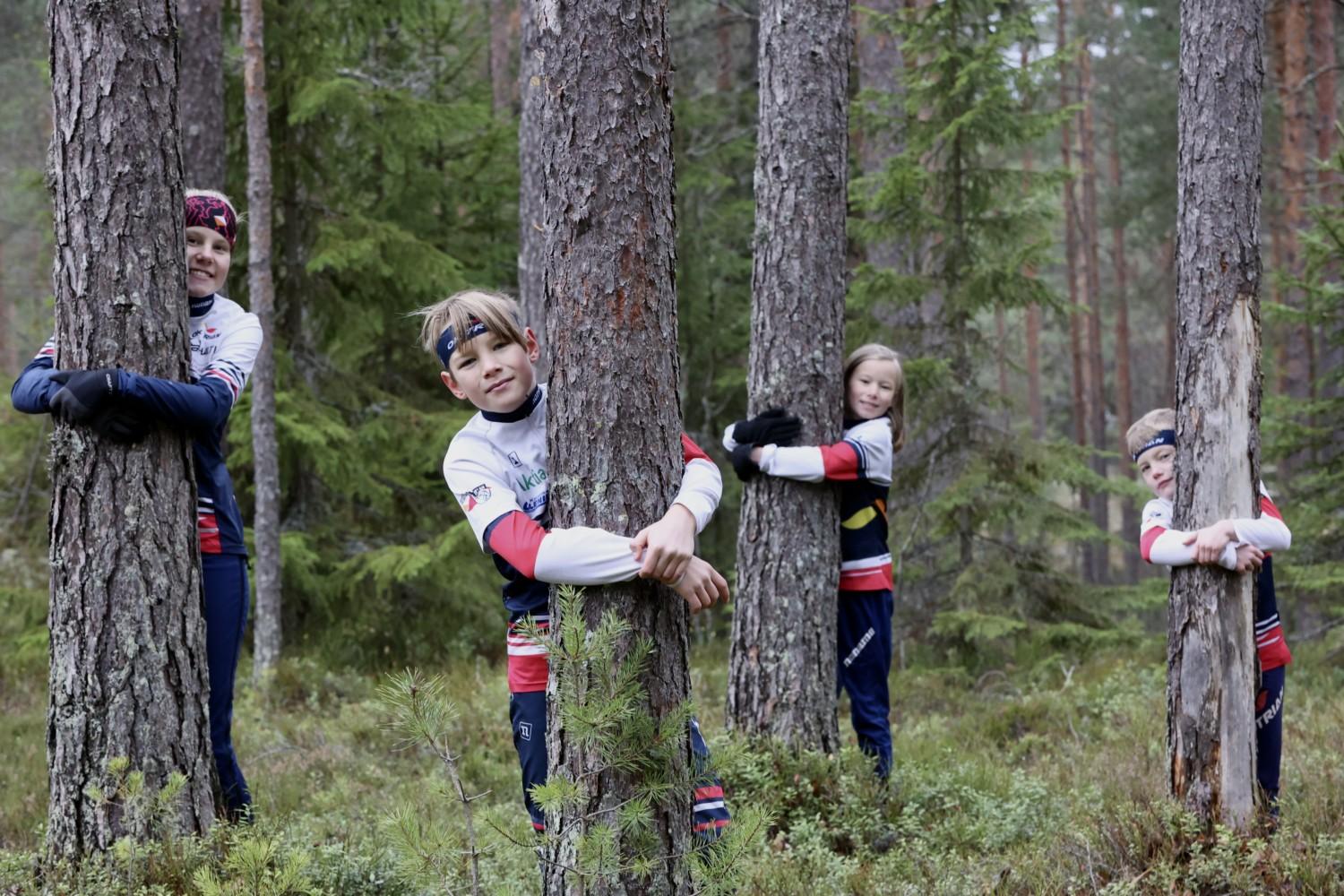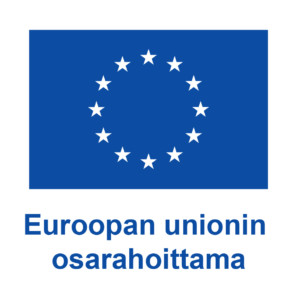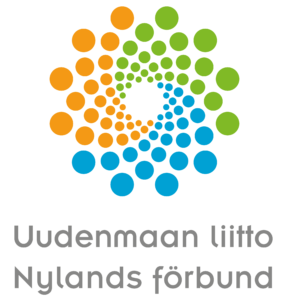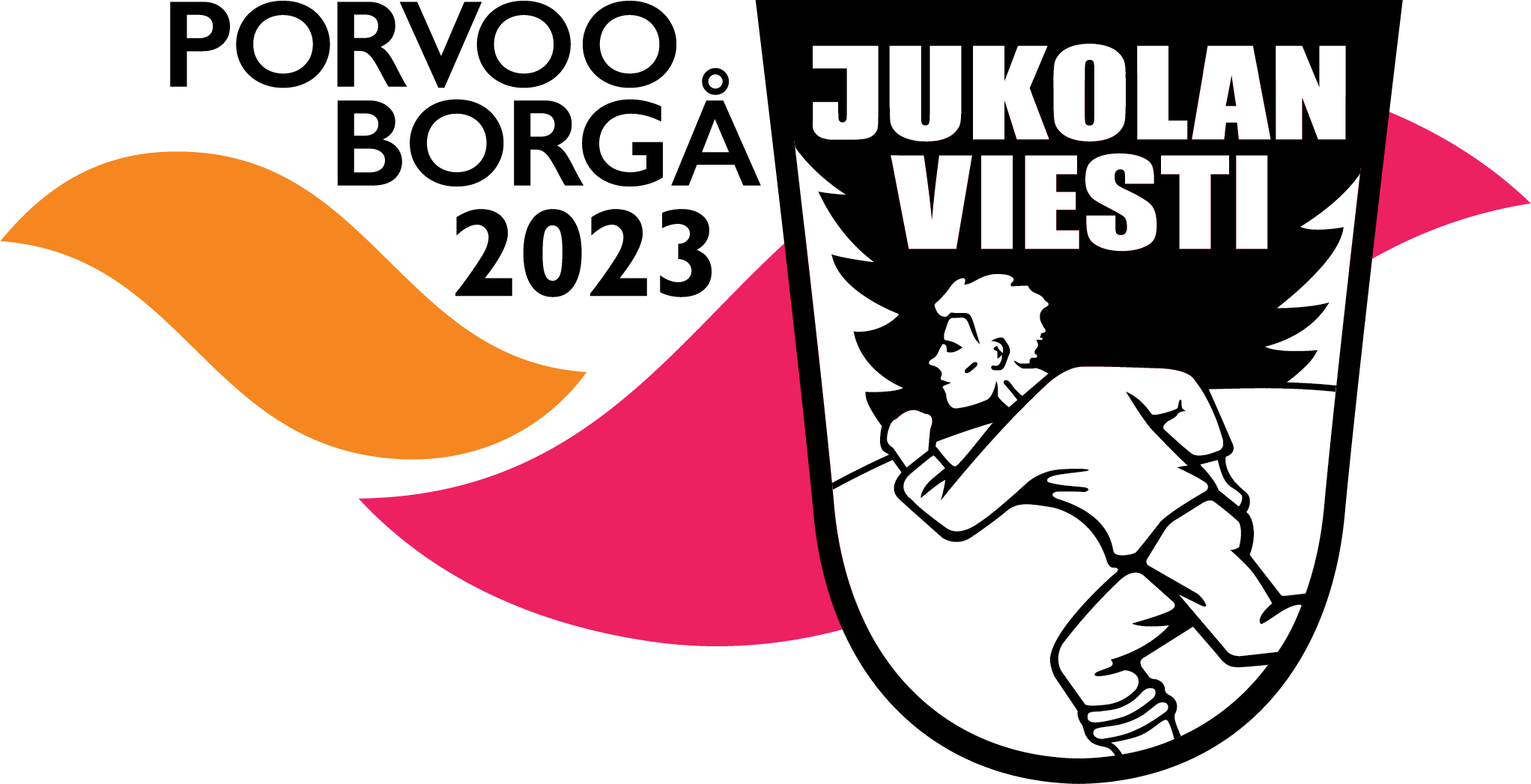
CARBONWISE JUKOLA
The main goal of the Carbonwise Jukola project is to develop and pilot an operating- and learning model for a mass event that generates the smallest possible carbon footprint in connection with the Jukola event in Porvoo-Borgå, in collaboration with companies and partners involved in event production. The project is implemented by Posintra, the orienteering club OK Trian, and Aalto University. The project is funded by the European Regional Development Fund.
We need everyones contributions to achieve a carbon wise Jukola. The organizer, partners, competitors and participants are all doing their part. One thing ties to another one and this is why everyone’s help is needed to achieve the set goals. On this page we’ll tell how words turn into actions.




LOCAL COMPANIES DOING CARBONWISE JUKOLA
FIBER HIGHWAY & IOTOI
Fiber Highway is a telecommunications company, and they specialize in ICT installations and offer fiber optic network expert services. The concept is based on local service where Fiber Highway trains personnel local to the company to carry out for example installation work. With this thousands of driven kilometres are saved, time, money and of course the nature. In Finland Fiber Highway is responsible for about 80 percent of the data center service market. The company have offices in Porvoo and Hamina, but customers nationally and internationally. From the waste heat produced by the datacentres the affiliated company IOTOIs story started. IOTOIs technical innovation circulates waste heat to heat energy for the district heating network.
Read more about Fiber Highways and IOTOIs story here.
MUOVI-SIMOLA
Muovi-Simola is a family-owned business located in the beautiful rural village of Kerkkoo. Muovi-Simola meets the needs of businesses and individuals in the amazing world of fiberglass! This company combines knowledge, skill, and a true passion for solving customers’ needs and desires! Muovi-Simola’s products withstand time and wear and tear in various industrial solutions as well as household needs. The Kerkkoo factory produces the Helmi swimming pool series, trailer covers, technical spaces, and various components for industry. The company is constantly striving to develop its operations in a more environmentally friendly direction. The factory uses renewable energy, air-source heat pumps replace oil heating technology, lighting has switched to LEDs, and the company also addresses other socially impactful issues.
How do Muovi-Simola, swimming pools, and teaching civic skills relate to Jukola relay? Read the article about Muovi-Simola.
HAIKON KARTANO
Haikko Manor is a well-known luxurious manor and spa hotel located in Porvoo. At Haikko Manor, luxurious events are created, memorable moments are made, good food is enjoyed, and guests are pampered. Haikko Manor achieves all of this while paying special attention to environmental responsibility. Did you know that Haikko Manor’s daily operations are guided by the Green Key and Sustainable Travel Finland programs?
The following are some of the everyday practices at Haikko: Efficient and eco-friendly water and energy consumption, effective waste sorting and recycling, staff training in environmental issues, room cleaning products are environmentally certified, active communication of environmental work to customers, over 60% of heating energy comes emission free from the sea – since the 1980s! Use of environmentally friendly EKO-energy certified by the Finnish Association for Nature Conservation. Electricity is produced from local forest biomass in the Porvoo Tolkkinen bio power plant. Minimization of water consumption through the use of water-saving fixtures.
You can read more about Haikko Manor’s impressive work on their website.
REVANSSI
Revanssi offers comprehensive waste management and recycling services in Southern Finland, as well as waste reception services in Kilpilahti in Porvoo, Munkkaa in Lohja, and Meltola in Karjaa. The core of Revanssi’s entire operation is responsibility for the environment.
As a concrete act of responsibility, in 2022, Revanssi conducted carbon footprint calculations for waste management, recycling, transportation, treatment, and utilization. Now, Revanssi can provide its customers with concrete information on the climate impact of the waste they produce.
In Jukola, Revanssi strives to make sorting as easy as possible for participants! The goal is to provide participants with a positive experience of functional waste management at the event, in addition to good orienteering memories.
Read more about Revanssi here!
SINNE
Sinne is one of the cornerstones of the restaurant scene in Porvoo, and at Jukola, Restaurateur Kai Kallio will be responsible for implementing Mallasrasti. At Sinne, environmental and sustainability considerations run throughout the entire operation. The environmental idea was expanded in 2020 when they applied for the Nordic Swan Ecolabel, which sets precise criteria for operations and makes environmental actions transparent. With the Nordic Swan Ecolabel, sustainability is evident in all aspects of the restaurant’s operations, from green electricity to raw materials, chemical use, equipment procurement, and waste sorting. Through the Nordic Swan Ecolabel network, everything from printer ink is on a sustainable footing.
Now, our goal is to further investigate and tighten our carbon footprint. We want to continue to be a forerunner in this transformation and offer customers the opportunity to make responsible choices. We want to be involved in determining the carbon footprint of a massive sports event like Jukola and learn from it. I have long been considering the formation of a carbon footprint from the perspective of restaurant operations: how far can supply chains go and what factors are decisive. With the Carbonwise Jukola project, the light begins to brighten. Carbonwise operations and life will also require cultural changes, but we should not be afraid of that, Kai Kallio encourages.
For more information, you can visit https://posintra.fi/tekemassa-hiiliviisasta-jukolaa-nordic-ravintolat/
TOIMISTOTUKKU TALKA
Toimistotukku Talka has been serving both companies and individuals in office supply matters for decades. The roots of this family-owned business date back sixty years. Talka’s product range is based on quality, durability, and the success of the customer. Talka is also known for its excellent customer service, which has made it a trusted partner for many companies.
Talka started its journey as an office equipment maintenance provider, and maximizing the lifespan of office supplies remains at the core of its operations. In the Carbonwise Jukola project, Talka employees have sought to further improve their knowledge and have sought support to move towards even more responsible business operations.
Read the full story about Talka here.
PL-RAKENNUS
PL-Rakennus is a construction company based in Porvoo, Finland, which has been led by Pekka Lindblad since 2000. Many people are surprised by how much construction work can impact emissions. In this context, the excavator operator plays a crucial role: they can either simply dig the ground or do so responsibly and systematically. The excavation method and order can significantly influence the required hours and help avoid unnecessary soil transportation, directly affecting fuel consumption and emissions. Our goal is to achieve carbon-neutral construction work, which can be accomplished not only through careful planning but also by gradually updating our equipment to enable the use of biofuels. To support this objective, our family-owned company recently acquired its own refuelling station this spring, allowing them to utilize more environmentally friendly fuel. It’s a fantastic investment for a better tomorrow!
Read the entire story about PL-Rakennus in this link!
SMAKU EVENTS
The Smaku food event will be enjoyed again this summer in August in Porvoo and Loviisa. The event production company that highlights local flavors and entrepreneur-driven restaurants joined the Jukola Relay without hesitation when the opportunity arose! It’s fantastic that even smaller players have the opportunity to participate in such events. Among this year’s Smaku restaurants, there is Sinne at Jukola, which handles the operations of Mallasrasti, and Ranta-Aitta, whose delicious food is enjoyed in the VIP area, says Laura Pulkkinen from Smaku. Sustainability actions are visibly reflected in Smaku through concrete material choices, business collaborations, and local involvement—wherever Smaku is, efforts are made to do things as locally as possible.
Learn more about Smaku by following this link.
CARBONWISE ACTIONS FROM THE COMMITTEES
29.5 – The construction of the Jukola competition center is progressing well. Committees are working on their core tasks, and this year is more environmentally friendly than ever!
When inquiring about updates from the Map and Course Committee as well as the Competition Committee, several actions are raised that significantly impact the reduction of the entire event’s carbon footprint.
It has become standard practice for the volunteers to carpool to the competition center, and this has already resulted in emissions reduction for each volunteer shift.
Regarding control points, surplus materials have been utilized as much as possible in their construction and in the overall use of timber in the area. As for the control flagpoles, they are made of fiberglass pasture poles with a lifespan so that they can be passed down from father to son. These control flagpoles have been in use by OK Trian for quite some time.
Maps are an essential part of the responsibilities of the Map ad course committee. According to information from Grano, the total weight of the Jukola maps is approximately 7000 kilograms, indicating that a significant amount of paper is used in an event the size of Jukola. However, the paper used in the maps is environmentally friendly, as it is sourced from sustainably managed forests and is PEFC-certified.
In the advertisement signs, a new type of implementation will be seen. The advertisement signs will be made of outdoor cardboard, which can be recycled in cardboard recycling.
In preparing for the competition in Porvoo, much of the work is done manually rather than using machines. The principle followed in the construction of the competition is to borrow first, then rent, and only as a last resort, purchase. It has also been noted that the use of a traditional handsaw remains in the hands of the builders, requiring no energy consumption from sources other than the builders themselves 😉
Carbonwise thinking has become deeply ingrained in the work of the committees. It is not only talked about but, more importantly, reflected in their actions, according to Jari Johansson, the Deputy Competition Director.
28.4 – Carbon wisdom, carbon neutrality, compensation, climate actions… we live in a golden age of responsibility terminology, and in this time it is important to be precise in using the correct terms. The Carbonwise Jukola project began with the idea of doing things as well as possible, with the environment at the forefront. It is not worth changing what works well and efficiently, but it is important to repair the old to extend its lifespan and keep the product in good condition. Porvoo Jukola has aimed to do things with a carbonwise edge from the beginning. Carbon neutrality is a goal that has been set at the state level for our country in the near future, but what every individual actor can do for a better world every day is actions. It is better to do every action towards a carbonwise event than to think that if we can’t make a mass event carbon neutral, then we won’t do anything. In Jukola, we want to hear real numbers and results and continue the journey towards a carbon-wise path for mass events based on them. Doing things with thoughtfulness and common sense. We will be wiser in our operation and learning model when Jukola is behind us. Before that, we do every action as carbonwise as possible. Carbonwise Jukola has already made its mark by bringing up these issues for discussion, changing the mindset of individuals, and goals of local businesses, for example. Every action has the opportunity to affect attitudes, and with attitudes, changes are made in the world.
3.4 – The construction of the area is a factor that has been considered from different perspectives and although it does cause emissions, there is a lot that can be done about it. How is the soil moved? The importance of planning and driver professionalism is significant in reducing emissions. What is the purchased gravel reused for? What will happen to the built area after Jukola?
The largest emissions come from people’s transportation. This is something the organizers has invested in, for example, by renting electric buses to travel non-stop between Porvoo city centre and the competition centre. Shared transportation will reduce emissions and manage the traffic congestion on Epoo’s small roads. Shared transportation is easily accessible from the city centre and saves time for visitors when they don’t have to queue for parking on the winding roads. Most visitors arrive from further away, so jumping on Jukola’s electric bus is a convenient way to get to the competition centre if you arrive to Porvoo by public transport.
27.3 – With the large number of visitors in Jukola a lot of food is also consumed. Food waste can be minimized by investing in the quality and taste of the food. Plates and cutlery are chosen carbon wisely and waste sorting is considered in the selection to directly impact the waste management of the area. The raw materials in the served food are mainly Finnish and locally sourced produce. The consumer is in the key role regarding what is found on the plate. In Jukola there will be a lot of different vegetarian and vegan food options available.
17.3 – The goal is an operating and learning model
The purpose of the Carbonwise Jukola project is to build an operating and learning model for organizing mass events in the most carbon wise way possible. Alongside OK Trian, the project includes the local development company Posintra and Aalto University. The project is being implemented through strong collaboration with local businesses supported by Posintra, with continuous research and scientific perspective brought by university partnership. The project involves ongoing dialogue among different stakeholders, with weekly progress updates and a reflection on whether the right actions are being taken. The project also aims to increase awareness of carbon wise practices among local businesses and support them on their journey towards more sustainable operations.
The goal is to create a concrete tool for action and learning that can easily be applied to any event. Is a mass event like Jukola is built from scratch in the middle of nowhere, this learning model will probably contain more information than most organizers need.
6.3.2023 – The committees have brainstormed ideas and different alternatives have bravely been mapped and more carbon wise decisions will be made during the spring. The Arena production’s theme is to save electricity by not lighting up unnecessary areas of the arena and using dark backgrounds instead of light ones for the material shown on the big screens. This action saves energy and reduces light pollution.
Material efficiency is also one of the main themes. This theme can probably br considered in every production. How much rotating equipment is there? How much do we own? How much do we need to rent/borrow? How to control the rotating equipment and how to reduce it responsibly? The partners in Porvoo Jukola have taken a active role and a lot of equipment they can’t reuse is going to be used during the Jukola weekend.
3.3.2023 – The land of a thousand lakes and forests. In Finland we have enough trees, or do we? Even if there is enough trees, the Map and course committee decided to order the timber needed for the controls in custom lengths and possible surplus will be used in the building of the competition centre.
From the roughly 20 000 orienteers heading into the forest you can imaging the amount of cups needed at the drinking controls. Instead of plastic cups, cups made from cardboard will be used at Jukola.
1.3.2023 – The Jukola relay committees are in a key position when planning how to build a carbon wise mass event. The work done by the committees helps to achieve concrete changes in the building of the event and in the minds of the people building it. The maintenance committee has decided that the advertising signs are going to be made out of recyclable cardboard instead of plastic. The advertising signs are mostly single use so recyclable cardboard is a considerably smarter choice.
The competition leaflet will only be printed in a batch of 1500 copies, which will be available in the competition centre during the weekend. You can also read the competition leaflet in digital form when ever and wherever during the competition weekend. A solution for sending out the competition leaflet with the local newspapers was also wanted, the solution is a digital version + small printed batch. Taking into account the big distribution area the decision was easy to make.
More information
20.3.2023 Carbonwise Jukola – to control 1
1.11.2022 Carbonwise Jukola leads the way for future events
